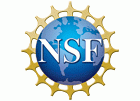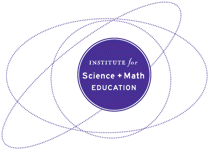Professional Development that Supports Teacher Learning about the New Vision for Science Education

Why It Matters To You
- Teachers should collaborate to analyze student work samples and video of their own teaching in ways that connect PD experiences with their classroom teaching.
- District staff & PD providers should provide sustained and responsive PD opportunities that focus on teachers' collaborative analysis of classroom instruction.
- School leaders should support schedules that allow for teachers to meet and discuss instructional practice in science.
What Is The Issue?
The new vision for K-12 science education expects learners to engage deeply with science and engineering practices to develop and apply conceptual ideas. This strong connection between practices, cross-cutting concepts, and core ideas in science and engineering is different from previous science standards. This requires teachers to shift classroom instruction. Carefully designing professional development (PD) opportunities plays a large role in supporting educators' learning about this new vision and how it can look in their unique classrooms.
Authors:
BY CHRISTIE BARCHENGER & TANA PETERMAN - APRIL 2015
Reflection Questions
- What is at the 'center' of PD that you facilitate? How might PD for the new vision for science ed look similar or different?
- How have you elicited feedback from teachers about previous PD? If new PD needs to be responsive to emergent problems of practice, how can you allow for that?
- How does your PD support sustained teacher collaboration?
Things to Consider
- PD in education has often taken the form of one-time sessions that focus on 'telling' teachers about new curricula or instructional strategies. Supporting teachers' engagement with the new vision for K-12 science education will require a departure from this format.
- PD should be structured around teachers analyzing 'rich images' of classroom enactment. These rich images may include classroom videos of teachers who are not part of the PD group but should ideally include classroom video and student work from teachers engaged in the PD. Teachers are working collaboratively in cycles to apply specific aspects of the new vision to their classrooms, analyze classroom episodes and resulting student work, and use that analysis to continue shifting instruction. The 'Plan-Do-Study-Act' tool helps ground teachers' work in specific problems of practice.
- Because PD should be focused on supporting teachers to make sense of the new vision for their own school contexts, PD has to be responsive to emergent problems of practice as teachers work toward implementation. For example, a Claims-Evidence-Reasoning (C-E-R) framework may be useful in helping teachers initially scaffold students' participation in the practice of argumentation, but over time teachers will need a suite of strategies to support students in the different aspects of argumentation.
- With time and pragmatic constraints related to teachers' schedules, professional development should "capitalize on cyber-enabled environments" to support teacher collaboration.
- The new vision for science teaching and learning may be in tension with current classroom practice. Learning opportunities can be situated both in and out of the classroom to leverage various learning goals (Putnam & Borko, 2000). Collaborations with STEM professionals can provide opportunities to engage authentically with the science and engineering practices in order to develop an understanding of how the practices exist outside of the classroom, as well as opportunities to identify and learn about relevant phenomena and contemporary science issues in their content area.
Attending to Equity
- Focus some PD time on learning more about the ways in which students' communities think about engaging with the natural and built world(s) and how this can be a basis for instruction. Students should learn science by building on their existing ideas about the natural world, as opposed to discounting them.
- Include Special Education and EL teachers as co-designers in PD in order to support inclusive instruction and learning.
Recommended Actions You Can Take
- Align PD with a comprehensive implementation plan.
- Initiate conversations with colleagues, anchored in student work and classroom video, about the new vision and instructional practice.
- Several PD models fit research-based criteria for effective PD--focused on core science content, sustained over time, centered on student work. PD facilitators can also consult the NSTA's Introducing Teachers and Administrators to the NGSS. Consider what might work for or be adapted in your local context. The following resources might be useful:
- Connect with an emerging community of educators implementing the new vision.
ALSO SEE STEM TEACHING TOOLS
STEM Teaching Tools content copyright 2014-22 UW Institute for Science + Math Education. All rights reserved.
This site is primarily funded by the National Science Foundation (NSF) through Award #1920249 (previously through Awards #1238253 and #1854059). Opinions expressed are not those of any funding agency.
Work is licensed under a Creative Commons Attribution-ShareAlike 4.0 Unported License. Others may adapt with attribution. Funded by the National Science Foundation (NSF). Opinions expressed are not those of any funding agency.


 Email Feedback
Email Feedback


